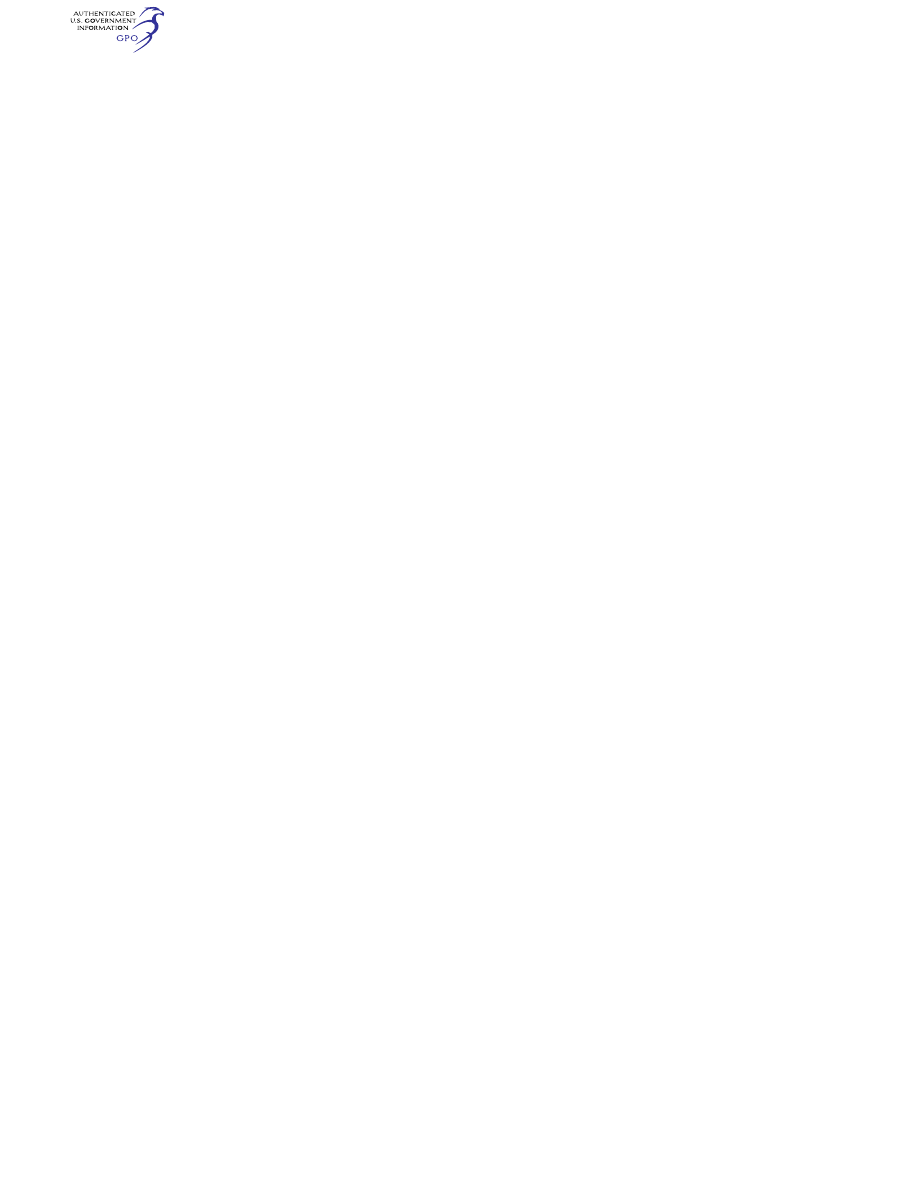
762
14 CFR Ch. I (1–1–24 Edition)
§ 35.35
prior to implementation and may re-
quire additional testing. Any unsched-
uled repair or action on the test article
must be recorded and reported.
[Amdt. 35–8, 73 FR 63348, Oct. 24, 2008]
§ 35.35
Centrifugal load tests.
The applicant must demonstrate that
a propeller complies with paragraphs
(a), (b) and (c) of this section without
evidence of failure, malfunction, or
permanent deformation that would re-
sult in a major or hazardous propeller
effect. When the propeller could be sen-
sitive to environmental degradation in
service, this must be considered. This
section does not apply to fixed-pitch
wood or fixed-pitch metal propellers of
conventional design.
(a) The hub, blade retention system,
and counterweights must be tested for
a period of one hour to a load equiva-
lent to twice the maximum centrifugal
load to which the propeller would be
subjected during operation at the max-
imum rated rotational speed.
(b) Blade features associated with
transitions to the retention system (for
example, a composite blade bonded to a
metallic retention) must be tested ei-
ther during the test of paragraph (a) of
this section or in a separate component
test for a period of one hour to a load
equivalent to twice the maximum cen-
trifugal load to which the propeller
would be subjected during operation at
the maximum rated rotational speed.
(c) Components used with or attached
to the propeller (for example, spinners,
de-icing equipment, and blade erosion
shields) must be subjected to a load
equivalent to 159 percent of the max-
imum centrifugal load to which the
component would be subjected during
operation at the maximum rated rota-
tional speed. This must be performed
by either:
(1) Testing at the required load for a
period of 30 minutes; or
(2) Analysis based on test.
[Amdt. 35–8, 73 FR 63348, Oct. 24, 2008]
§ 35.36
Bird impact.
The applicant must demonstrate, by
tests or analysis based on tests or expe-
rience on similar designs, that the pro-
peller can withstand the impact of a 4-
pound bird at the critical location(s)
and critical flight condition(s) of a typ-
ical installation without causing a
major or hazardous propeller effect.
This section does not apply to fixed-
pitch wood propellers of conventional
design.
[Amdt. 35–8, 73 FR 63348, Oct. 24, 2008]
§ 35.37
Fatigue limits and evaluation.
This section does not apply to fixed-
pitch wood propellers of conventional
design.
(a) Fatigue limits must be estab-
lished by tests, or analysis based on
tests, for propeller:
(1) Hubs.
(2) Blades.
(3) Blade retention components.
(4) Components which are affected by
fatigue loads and which are shown
under § 35.15 to have a fatigue failure
mode leading to hazardous propeller ef-
fects.
(b) The fatigue limits must take into
account:
(1) All known and reasonably foresee-
able vibration and cyclic load patterns
that are expected in service; and
(2) Expected service deterioration,
variations in material properties, man-
ufacturing variations, and environ-
mental effects.
(c) A fatigue evaluation of the pro-
peller must be conducted to show that
hazardous propeller effects due to fa-
tigue will be avoided throughout the
intended operational life of the pro-
peller on either:
(1) The intended airplane by com-
plying with § 23.2400(c) or § 25.907 of this
chapter, as applicable; or
(2) A typical airplane.
[Amdt. 35–8, 73 FR 63348, Oct. 24, 2008, as
amended by Doc. FAA–2015–1621, Amdt. 35–10,
81 FR 96700, Dec. 30, 2016]
§ 35.38
Lightning strike.
The applicant must demonstrate, by
tests, analysis based on tests, or expe-
rience on similar designs, that the pro-
peller can withstand a lightning strike
without causing a major or hazardous
propeller effect. The limit to which the
propeller has been qualified must be
documented in the appropriate manu-
als. This section does not apply to
VerDate Sep<11>2014
09:06 Jun 28, 2024
Jkt 262046
PO 00000
Frm 00772
Fmt 8010
Sfmt 8010
Y:\SGML\262046.XXX
262046
jspears on DSK121TN23PROD with CFR